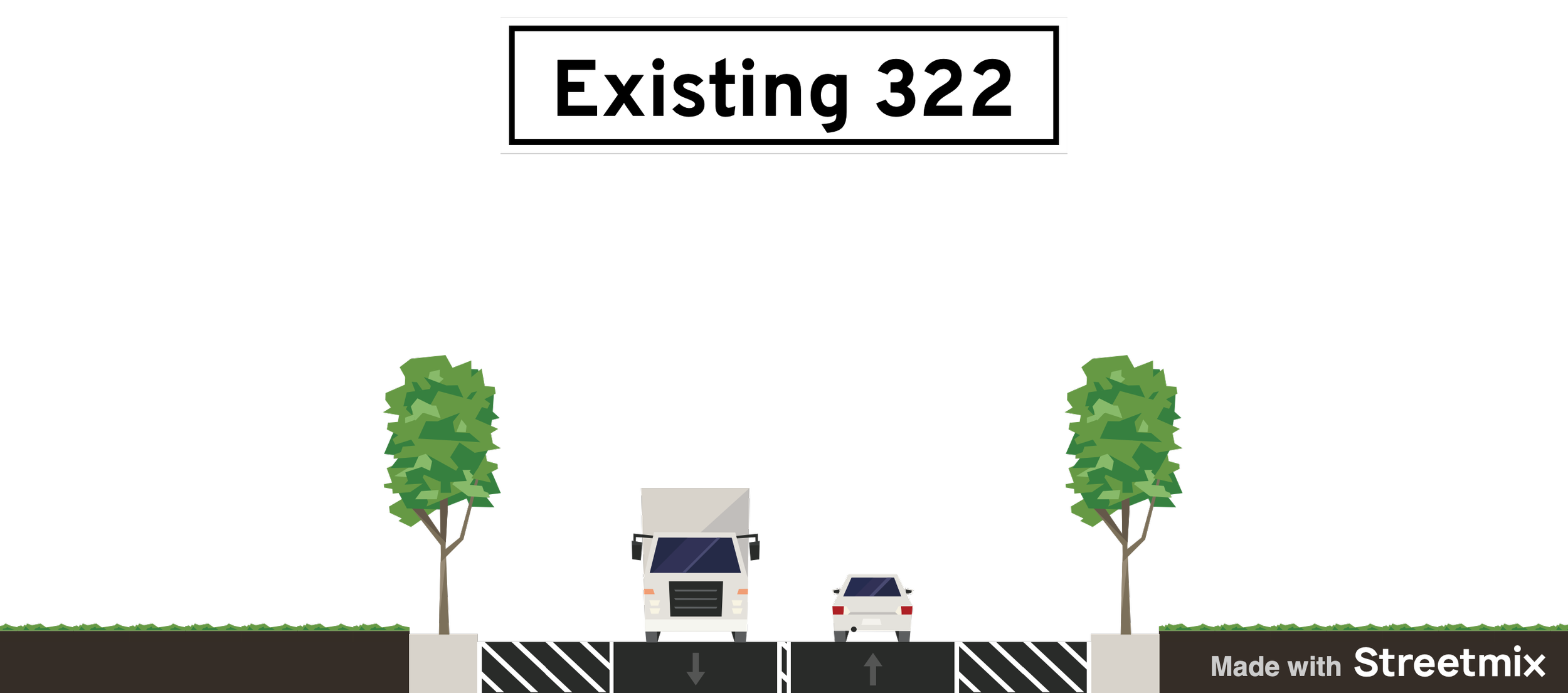
Highways are extremely wide, requiring massive demolition to local farms and forests.
Transit has a much lighter footprint.
Local farms and ecosystems would be significantly impacted
Every option of PennDOT’s State College Area Connector involves extensive demolition of local farms, homes, and forests, devastating the officially-designated Penns Valley Rural Heritage District.
Highways are extremely wide
One reason why car-dependency is so problematic is the sheer space required for automobiles. Each car, despite being only 6 feet wide, requires a 12-foot-wide lane and 8-foot shoulder emergency lanes. For example, while only a 2-lane road, the current Route 322 is 50 feet wide:
Even worse, I-99 near Port Matilda is a whopping 170 feet wide, due to median and buffer zones in the median and edges, causing significantly more disruption to the landscape and residents:
Transit offers a solution
People don’t always need to constantly haul around four (or more) unused seats and an extra 2-3 tons of vehicle. At best, modern estimates place occupancy at 1.4 people per car.
In an oft-repeated experiment (here depicted in Seattle) which illustrates the spacial inefficiency of automobiles, while it takes hundreds of cars five lanes wide and five blocks deep to transport two hundred people, everyone can fit on just three busses.
In contrast, alternative transportation options such as transit and bicycling have a significantly smaller impact on the physical environment.
In this case, a rail transit corridor as narrow as 15 feet, or a bike trail as narrow as 12 feet, allows the movement of just as many people as a highway in much less space. This saves money, protects forests, and preserves rural farm heritage.
It’s also worth noting that electric or self-driving cars will not solve this problem.






